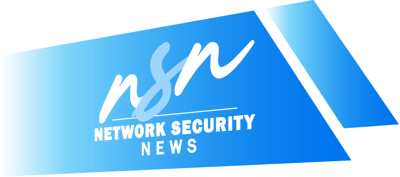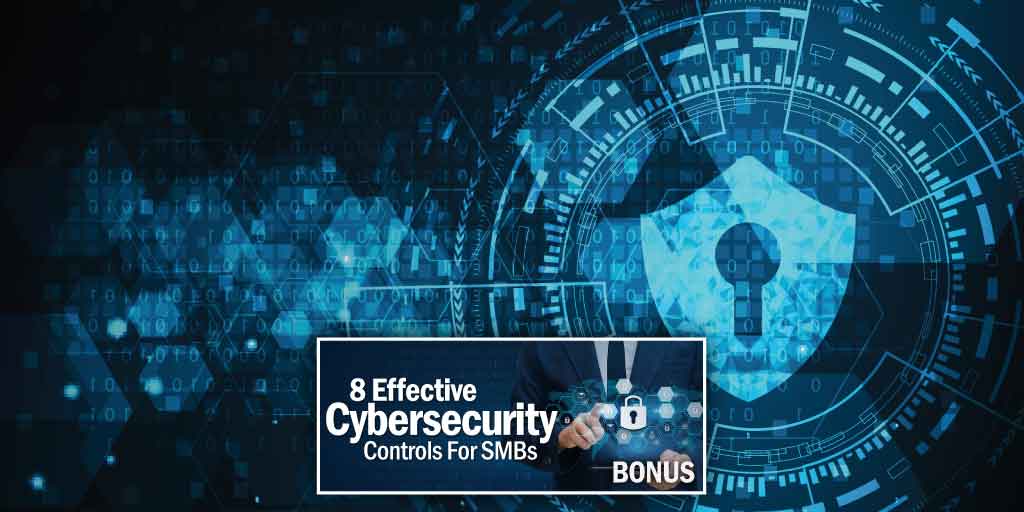Bonus Control: Engage Expert Partners To Manage Cybersecurity Risk
If you've read through the many controls in this article and thought, "great, how do I do all these things with the budget or people available?",...
24/7/365 Monitoring & Alerting
Compromise Assessments
Threat Hunting
Vulnerability Management
CMMC Preparation & Assessment
Cybersecurity Assurance Readiness (CSAR®/RMF Pro)
ATO/RMF Support
If you are concerned about a potential threat or are experiencing a breach, contact our 24/7/365 emergency hotline at 888-860-0452.
 Subscribe to NetSec News
Subscribe to NetSec NewsSign up to receive our biweekly newsletter that covers what's happening in cybersecurity including news, trends, and thought leadership.
At our core, Ingalls is a company that strives to be helpful to our clients while continuously innovating and evolving our technology and solutions. Since 2010, we have been dedicated to building a team and product that can stay steps ahead of threats, attacks, and vulnerabilities in an ever-changing landscape.
5 min read
 Stephen Gutleber
:
Jun 27, 2023 12:00:00 AM
Stephen Gutleber
:
Jun 27, 2023 12:00:00 AM
In the ever-evolving landscape of cybersecurity, businesses across industries face an increasing number of regulatory requirements. One such regulation that has gained significant prominence in recent years is the Model Audit Rule (MAR). As cybersecurity becomes an indispensable aspect of organizations' operations, complying with MAR has become crucial for ensuring data protection and minimizing risks. In this blog post, we will explore the key elements of MAR and how professional cybersecurity consulting firms can assist businesses in meeting compliance requirements.
.
The Model Audit Rule, also known as MAR, is a regulation developed by the National Association of Insurance Commissioners (NAIC) in the United States. MAR requires auditor independence, corporate governance, and internal control over financial reporting standards. IT and cybersecurity are key components in the Audit Rule’s implementation and testing, and MAR establishes standards and guidelines for insurance companies to assess and manage the cybersecurity risks they face. MAR primarily focuses on the protection of nonpublic information and aims to safeguard the confidentiality, integrity, and availability of sensitive data.
MAR requires insurance companies to conduct formalized and comprehensive risk assessments to identify potential threats and vulnerabilities. By engaging professional cybersecurity consultants, businesses can benefit from their expertise in conducting thorough risk assessments and developing effective risk management strategies. These professionals employ industry best practices and frameworks, such as NIST Cybersecurity Framework or ISO 27001, to ensure a robust risk management process.
MAR mandates the implementation of a comprehensive information security program that addresses various aspects of cybersecurity, including data protection, access controls, incident response, and employee training. Professional services providers can assist organizations in designing and implementing tailored information security programs that align with MAR requirements. These programs encompass policies, procedures, and technical controls to safeguard sensitive information from unauthorized access and mitigate potential cyber threats.
MAR emphasizes the implementation and maintenance of appropriate security controls, prioritizing the use of automated controls over manual controls, and encouraging the use of more preventive controls such as access controls, encryption, network monitoring, and vulnerability management. These controls are crucial for mitigating risks and ensuring the confidentiality, integrity, and availability of sensitive data.
Insurance companies often collaborate with various third-party vendors and service providers, increasing their exposure to potential security risks. MAR emphasizes the need for effective third-party risk management processes to ensure that the cybersecurity controls of external entities align with the organization's requirements. Cybersecurity consulting firms can assist in conducting thorough audits of third-party vendors, assessing their security controls, and establishing contractual agreements that enforce compliance and accountability.
MAR places significant emphasis on incident response readiness. It requires insurance companies to have well-defined incident response plans and procedures in place. Professional services providers can help organizations develop and test incident response plans, ensuring that they are efficient, comprehensive, and comply with MAR regulations. These consultants can also provide guidance during a cybersecurity incident, helping businesses minimize the impact and recover quickly.
Controls need to be assessed for design effectiveness, which can be accomplished through inquiry and process walkthroughs, as well as operational effectiveness, which requires control testing. Efficiencies can be introduced into testing by using rotating schedules for annual control testing.
MAR does not prescribe a specific security controls framework. However, it does emphasize the implementation and maintenance of appropriate security controls to ensure the protection of sensitive data and the integrity of critical systems. Organizations subject to MAR can adopt industry-recognized security control frameworks to help guide their compliance efforts. Some commonly used frameworks include:
NIST Cybersecurity Framework (CSF): The NIST CSF provides a comprehensive set of guidelines, standards, and best practices for managing and improving cybersecurity risk. It offers a risk-based approach to cybersecurity, focusing on key areas such as identifying risks, protecting assets, detecting threats, responding to incidents, and recovering from them. Many organizations find the NIST CSF framework valuable in aligning their security controls with MAR requirements.
ISO/IEC 27001: ISO/IEC 27001 is an internationally recognized standard for information security management systems (ISMS). It provides a systematic and holistic approach to managing information security risks. Implementing ISO/IEC 27001 involves establishing a set of controls based on a risk assessment and creating a management framework to ensure ongoing compliance and continuous improvement. Organizations can use ISO/IEC 27001 as a foundation for building their security controls framework to meet MAR compliance.
CIS Controls: The Center for Internet Security (CIS) Controls is a widely adopted security controls framework that offers a prioritized set of best practices to help organizations defend against prevalent cyber threats. The CIS Controls provide actionable recommendations for implementing security controls across various domains, including asset management, vulnerability management, access control, and incident response. Organizations can leverage the CIS Controls framework to develop and enhance their security controls in line with MAR requirements.
Other Industry-Specific Frameworks: Depending on the industry in which an organization operates, there may be industry-specific security controls frameworks that are relevant for MAR compliance. For example, financial services organizations may refer to the Payment Card Industry Data Security Standard (PCI DSS) or the Federal Financial Institutions Examination Council (FFIEC) guidelines for their security controls.
It's important for organizations to assess their specific needs, risk profile, and industry requirements when selecting a security controls framework to support MAR compliance. Implementing a well-established framework provides a structured approach to security control implementation, monitoring, and continuous improvement, helping organizations meet MAR requirements and enhance their overall cybersecurity posture.
Complying with MAR can be a complex and resource-intensive task for organizations. This is where professional services, such as cybersecurity consulting firms specializing in security control review and audits, play a crucial role. Here’s how a third-party consultant can assist organizations meeting MAR compliance.
Expertise and Experience
A third-party consultant or professional services team specializes in understanding and navigating complex regulatory landscapes. That expertise and experience helps organizations interpret MAR requirements accurately and develop tailored strategies to achieve compliance. It is critical to stay updated with the latest cybersecurity trends, best practices, and regulatory changes, ensuring that businesses are well-prepared to meet the evolving compliance landscape.
Comprehensive Assessments
A professional services team conducts thorough security control reviews and audits, identifying gaps and vulnerabilities in an organization's cybersecurity posture. Through meticulous assessments, they help businesses understand their current state of compliance, prioritize remediation efforts, and implement robust security controls that align with MAR requirements.
Customized Solution
Every organization has unique cybersecurity needs and faces specific challenges, so it’s important to get customized solutions tailored to your organization's size, industry, and risk profile. Expert consultants provide recommendations on technology implementations, process improvements, and employee training programs, ensuring a holistic approach to compliance.
Ongoing Support and Monitoring
Compliance with MAR is an ongoing process that requires continuous monitoring and improvement, so your organization will need ongoing support, periodic assessments, and monitoring services to help businesses maintain their compliance posture.
Ingalls’ Professional Services Team possesses deep knowledge and expertise in cybersecurity and regulatory compliance. Along with offering the four benefits discussed above, Ingalls helps organizations navigate the complexities of MAR, interpret the requirements, and tailor strategies to align with the specific needs of the organization.
Security Control Review - Conduct comprehensive control reviews, evaluating existing controls against MAR requirements. Gaps, weaknesses, and areas for improvement are identified, enabling organizations to enhance their security posture and align with regulatory standards.
Risk Assessments - Assist organizations in conducting thorough risk assessments to identify and prioritize potential threats and vulnerabilities. Risk Mitigation Strategies are developed ensuring a proactive approach to cybersecurity and compliance.
Policy and Procedure Development - MAR requires organizations to establish robust policies and procedures. Ingalls’ aids in the creation and implementation of tailored policies and procedures that align with MAR requirements and industry best practices.
Meeting the compliance requirements of the Model Audit Rule (MAR) is essential for organizations, particularly in the financial services sector. By engaging professional services firms specializing in security control review and audits, businesses can leverage their expertise and guidance to navigate the complexities of MAR effectively. These services offer valuable insights, assist in policy development, conduct thorough security assessments, and support organizations in their journey towards maintaining robust cybersecurity practices and meeting regulatory compliance obligations. Embracing professional services not only ensures compliance but also enhances overall security, safeguarding critical assets and maintaining customer trust in an increasingly digital world.

If you've read through the many controls in this article and thought, "great, how do I do all these things with the budget or people available?",...

For DoD contractors, failure to have or to make progress on NIST SP 800-171 requirements may be considered a material breach of contract...

A journey started in 2020 with the development of the Cybersecurity Maturity Model Certification (CMMC) 1.0, and the implementation of interim rules...